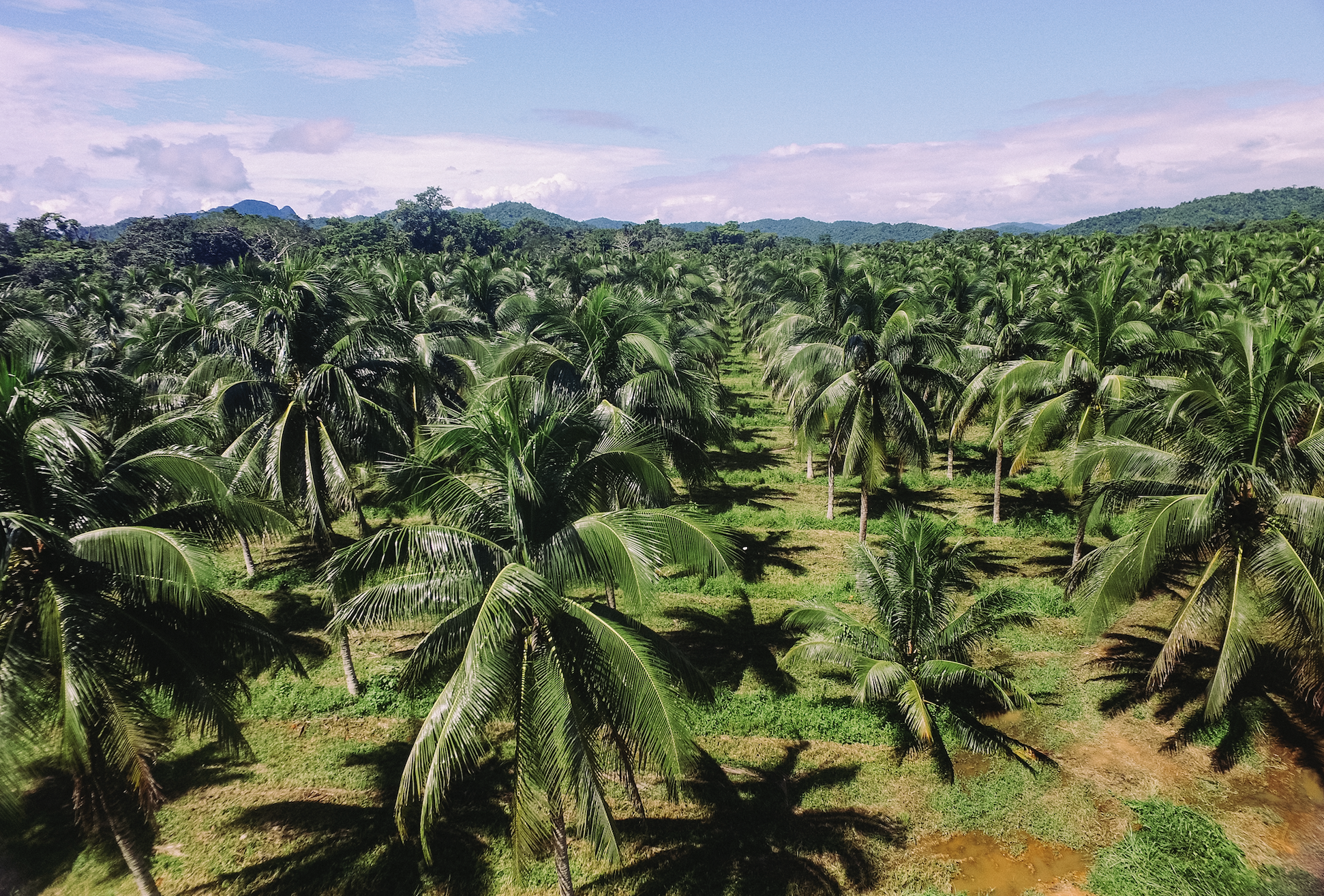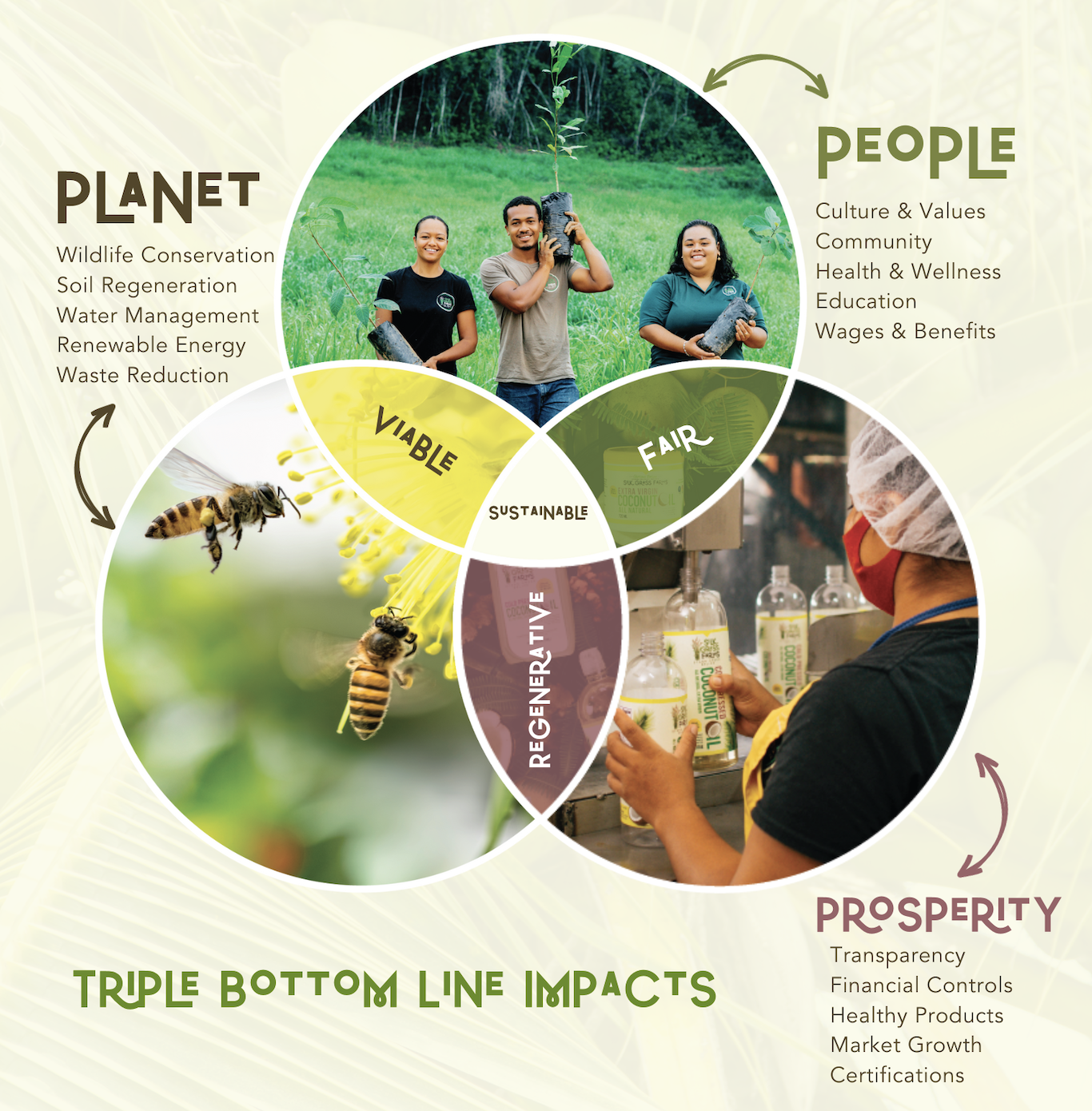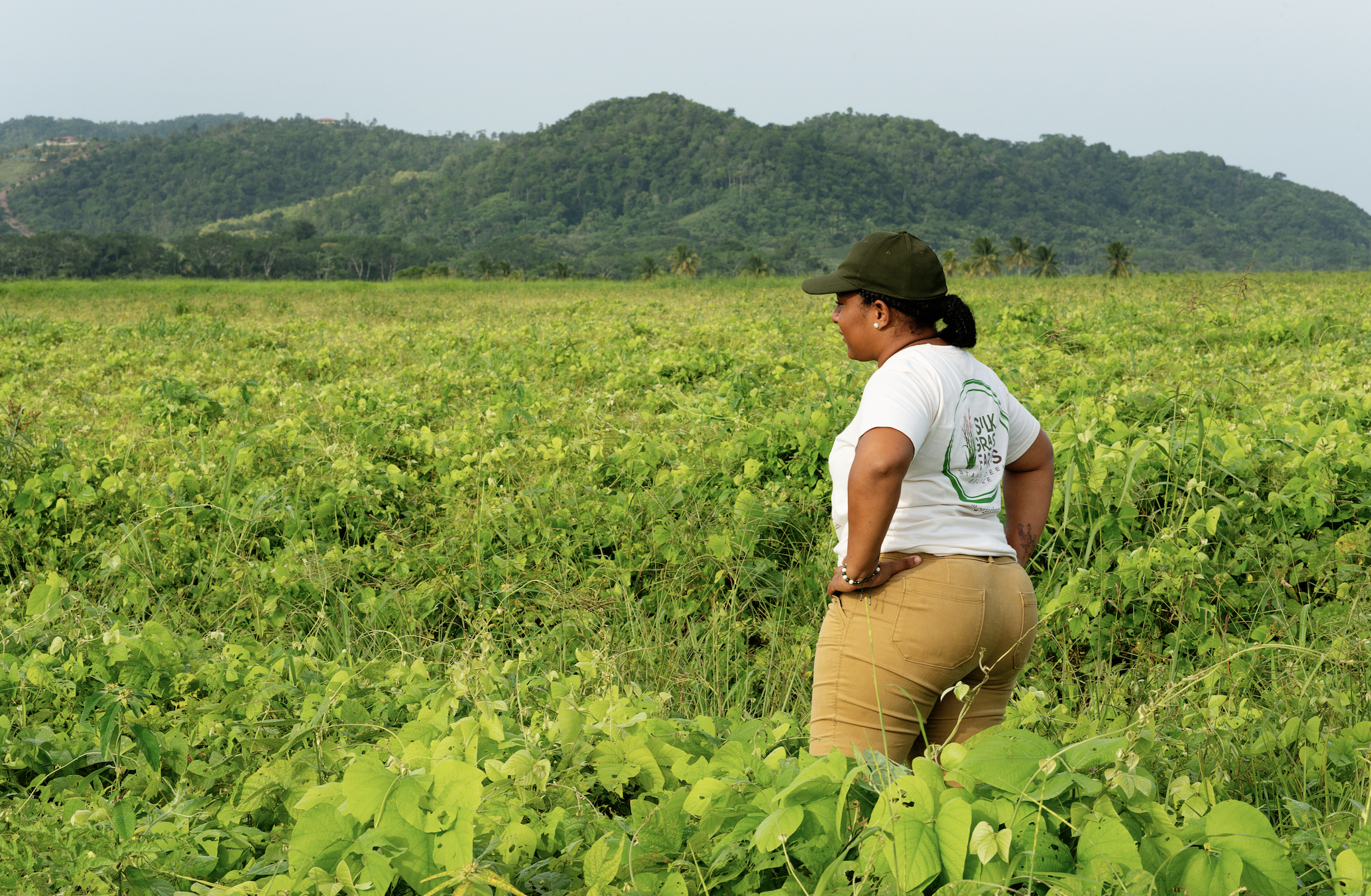
Farming for the Future
Silk Grass Farms is on a mission to develop a large-scale sustainable farming and food-processing operation that simultaneously supports the natural environment and the people of Belize.
Merging these two goals — protecting our earth while providing meaningful economic opportunities — is rare in conventional agriculture. Balancing food production with positive social and environmental impact requires patience, innovation, vision, and hard work.
That's where our dedicated team comes in — the skilled group of agronomists and farmers responsible for developing, implementing, and monitoring farming systems at Silk Grass Farms. Their charge is clear: prioritize long-term stewardship and protection of the land while developing systems that yield the highest quality crops and support thriving people.
Silk Grass Farms is committed to using agricultural practices that honor humanity’s relationship with nature, regenerate the soil, heal the land, and reverse climate change. By using holistic agricultural methods, the team is able to care for the soil, water, crops, grasses, forests, and wildlife, increasing ecological resilience and producing impactful results.
Four key principles provide the foundation for Silk Grass Farms’ sustainable and regenerative approach to farming:
Restore and conserve soil: Healthy, biodiverse soils are better able to produce premium food products over the long term. Silk Grass Farms’ approach to soil management includes a variety of practices that retain more organic matter in the soil, sequester carbon, save fuel, and reduce erosion. These include planting cover crops, reducing or eliminating tillage, creating high-value soil amendments like biochar and diversifying crops.
Responsible water management: Silk Grass Farms is continually improving its water management plan. Key water management practices enacted thus far include building reservoir ponds, installing drip irrigation for annual crop beds, and monitoring the water table. Reservoir ponds act as natural runoff catchment systems, preventing soil erosion, reducing risk of flooding, replenishing groundwater, and storing water in reserve for the dry season. Silk Grass Farms has eight water-table measuring stations to test the impact of its water management methods to protect the local watershed and downstream communities.
Foster crop diversity: Ensuring crop diversity across Silk Grass Farms improves soil health, contributes to the control of pests, fosters healthy microorganisms, and improves the enterprise's economic resilience. The farm’s main crops include mixed varietals of coconuts, citrus, avocado, mango and cacao. While coconuts thrive in the farm’s misty rainforest microclimates, citrus is best suited for the open, flat areas of the farm, and cacao agroforestry does best in the rich soils of riparian areas. The Farms also cultivate a range of smaller crops such as vanilla, passion fruit, ginger, pineapples and melons to diversify future potential food products and complement various land contours and soil types.
Work with nature: Silk Grass Farms relies on this foundational concept to increase land health. Through careful planning that is informed by the farms’ unique microclimates, the agronomy team designs agricultural methods that work with (not against) nature to reimagine how food can be grown and processed. By implementing regenerative farming practices that enhance the soil’s ability to store soil organic carbon (SOC), Silk Grass Farms is mitigating climate change while naturally improving our production systems. This approach recognizes the interdependence of healthy ecosystems and a thriving agribusiness — following nature’s lead to produce the best results for people and the planet.
Not the Easy Way, But the Right Way
Traditional agriculture is generally geared toward maximizing production — specifically, the volume of crops that can be produced — which results in extractive practices that don’t work in harmony with natural cycles. At Silk Grass Farms, “we have the opportunity to see how we can merge productive agriculture with nature itself and try to complement what is happening as opposed to taking away,” says Silk Grass Farms Agricultural Manager Fay Garnett. Under Fay’s leadership, the agronomy team considers production holistically, working diligently to identify how the various crops around the farm connect. In Fay’s words: “We have become adept at figuring out how to integrate ecological systems to improve our production while making the system the best it can be."
In the short term, this approach requires significant effort and intention. “It is not the easy way, but it is the right way,” says Fay, who has a master’s degree in Agroforestry and Sustainable Agriculture and prior work experience with the Belize Ministry of Agriculture. By engaging in daily assessments and continuously identifying improvements, the agronomy team strives to remedy the most pressing climate and biodiversity issues while staying grounded in a shared understanding that conservation and business can be allies.
The team’s philosophy is related to Silk Grass Farms’ B Corporation certification, which reflects the company’s commitment to use business as a force for good and value people, planet, and profit equally. For the majority of new employees, the concept of balancing efficiency with sustainability is new, and requires an important shift in mindset. For Fay, it means planning well beyond next season or even next year. “I am thinking about how the investments we make today in the land and the people can improve the future for the next generation,” she says.
A Sustainable Approach to Agriculture
Integrating Nature and People
In addition to doing what’s best for the environment, Silk Grass Farms is committed to doing what’s best for people — especially its employees and Belizean neighbors. The business model is designed to increase the flow of capital and opportunities to the local economy. This includes direct support of philanthropic initiatives, including the Silk Grass Wildlife Preserve, and investments in local infrastructure, as well as indirect support such as a commitment to clean production practices.
“We are working to integrate nature and people,” says Fay. “We want a productive field, and we also want productive people who are happy and content at work.”
Employee training is essential given the specialized nature of the work at Silk Grass Farms, and is also an investment the company makes to show employees their contributions are important and valued. Furthermore, as workers become familiar with the land and ecosystems at the farm, critical knowledge can be passed along from employee to employee, and generation to generation.
Silk Grass Farms is not seeking to develop any proprietary systems or approaches. As an enterprise dedicated to research, education, and lifelong learning, company leaders want to share what they are learning about sustainable agriculture and business practices. The work it takes to build a healthy and thriving farm doesn’t “belong” to any one entity — it has been informed by local, regional, and international expertise, from traditional approaches to cutting-edge innovations. Silk Grass Farms’ mission is to share its learnings with others and advance a shared vision for sustainable agriculture.
Silk Grass Farms Agricultural Manager Fay Garnett surveys a field of cover crops.



